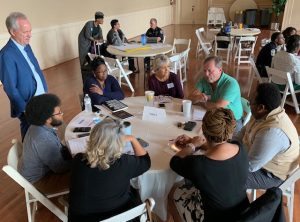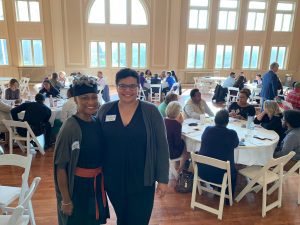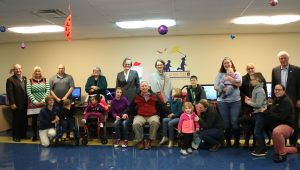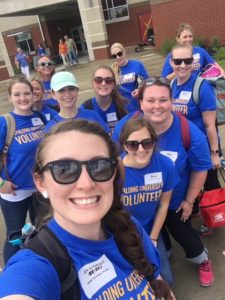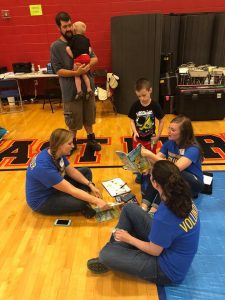Times of trouble and turmoil call us to serve our community for the greater good, but it can be challenging to find outlets for service in the midst of stay-at-home orders and social distancing. Thankfully, in the age of globalism, smart phones and social media, opportunities to engage in remote and digital volunteerism are readily available. Below are some suggestions for virtual volunteerism as well as more traditional forms of service that can be undertaken during the coronavirus crisis.
SPALDING’S Healthy Together COVID-19 PAGE | Resources and information
RELATED BLOG | Ideas for building community through compassion, service
Volunteer Virtually
Just because we’re social distancing, doesn’t mean you have to abandon your desire and call to serve others. Many organizations, nonprofits and businesses are offering remote and virtual volunteer opportunities.
Expand your search for virtual service opportunities on databases such as Idealist and JustServe, which allow you to search by location, type of volunteer gig, and even have options for COVID-19-focused volunteer projects.
Service Apps
Skip the computer and sign up for service opportunities straight from your phone! There are several apps that help connect people to nonprofit organizations and to each other to enhance service and volunteerism around the world.
Check out these great service-focused apps:
- Be My Eyes is a free app that connects blind and low-vision people with sighted volunteers and company representatives for visual assistance through a live video call.
- Olio connects neighbors with each other and Food Waste Hero volunteers with local businesses, to share food (and other things) rather than chuck them away.
- Wakie allows users to connect with the right person for any question, moment or life situation – anything from helping someone learn to speak English, to offering assistance with a specialized task, such as tax preparation or grant writing, etc.
- Blood Donor by the American Red Cross puts the power to save lives in the palm of your hand.
COVID-19 Convalescent Plasma Program
This is a unique service opportunity available to individuals who have fully recovered from COVID-19 to donate plasma in order to help current patients who are battling serious or life-threatening COVID-19 infections. Learn more here.
Make Face Masks
The Centers for Disease Control and Prevention (CDC) is now recommending that all people wear cloth face coverings when in public settings where social distancing is difficult to maintain, such as grocery stores and pharmacies.
JOANN’s website houses several mask making tutorials, as well as information about where and how to donate cloth masks, as part of their Make to Give Response efforts.
Surgical masks and N-95 respirators must continue to be reserved for healthcare professionals.
Check in on Friends, Family, Neighbors
Call, email, text, video chat! There are so many ways to connect these day, physical distance should never truly keep us apart. Take this time as an opportunity to reach out and support those in your community. Maybe it’s picking up a prescription, dropping off groceries or simply calling to say, “Hey, I’m thinking of you!”
Resources for connecting with others:
- Mutual Aid Networks – local, regional, national, international, and population focused mutual aid networks
- Wakie mobile app
Follow the Guidelines
Ultimately, one of the best and most effective ways to serve others during this time, is to follow the health guidelines promoted by reputable health organizations such as the CDC and World Health Organization (WHO). By protecting yourself you are protecting your community, by slowing the spread and modeling positive behaviors.
- Wash your hands frequently with soap and water for 20 seconds or hand sanitize with a minimum of 60 percent alcohol.
- Maintain social distancing, such staying home and avoiding close contact with others; maintain at least six feet distance from others whenever possible.
- Practice respiratory hygiene by covering your face and nose with cloth fabric when around others. Cover coughs and sneezes with a tissue or the inside of your elbow.
- Clean and disinfect surfaces with an EPA-registered household disinfectant.
Stay Connected to Spalding’s Office of Service Learning
The Office of Service Learning is dedicated to connecting the Spalding community with volunteer and service opportunities. Please contact Anna Foshee, Director of Student Leadership and Service Learning, with any information or inquiries regarding service and volunteerism.
